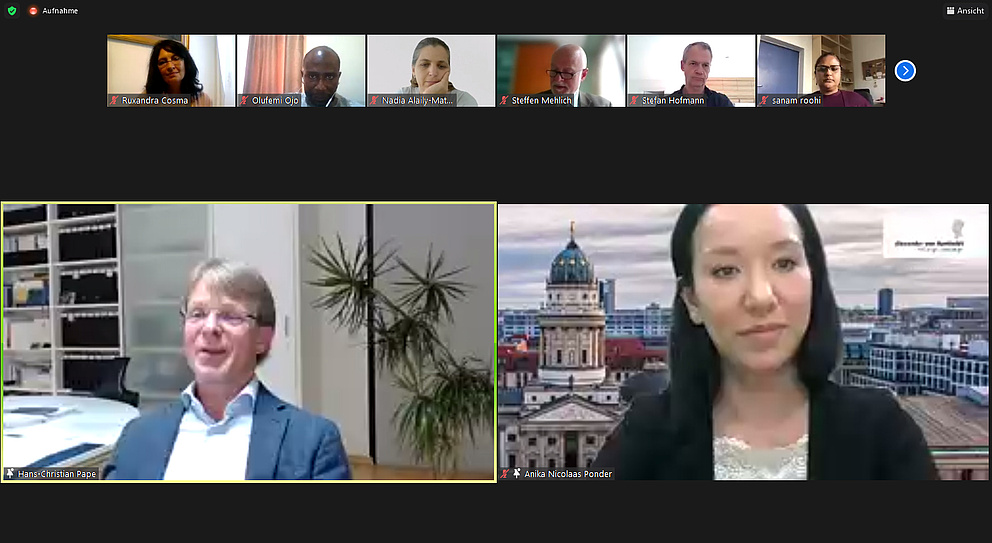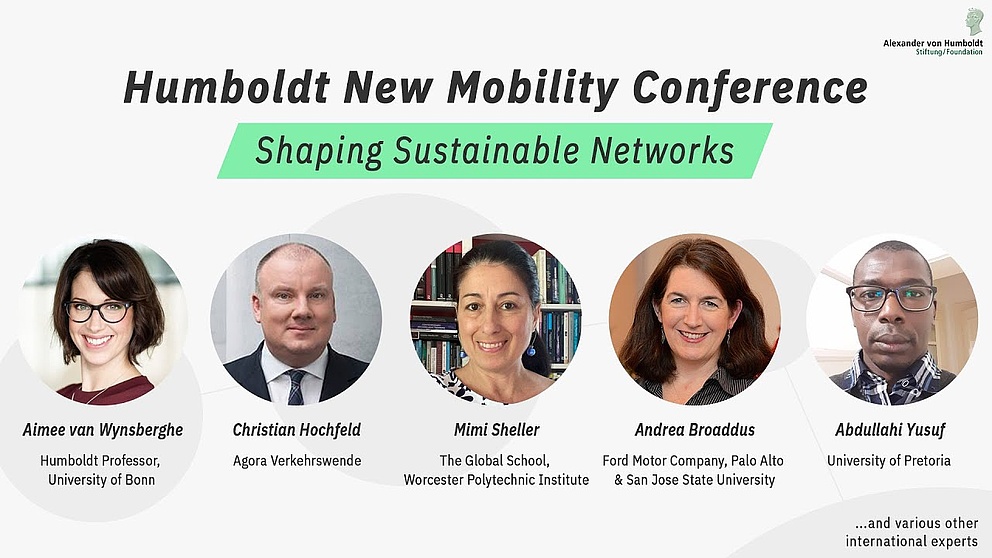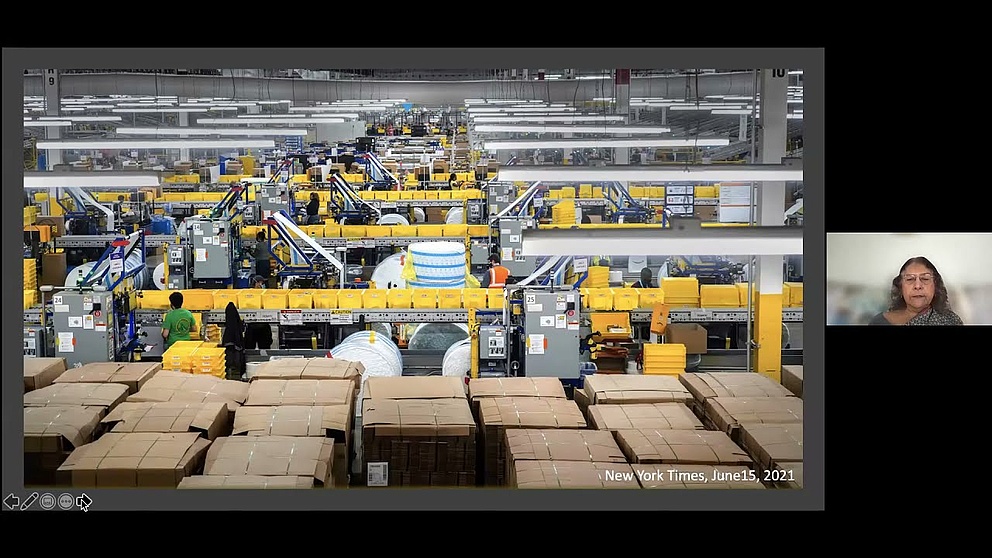
Contact
Press, Communications and Marketing
Tel.: +49 228 833-144
Fax: +49 228 833-441
presse[at]avh.de
How will we travel, transport goods and get around in cities and rural areas more sustainably in the future? How do new mobility technologies affect society? Around 150 participants from the science community, society and the political sector discussed this issue on 13 and 14 september at the international virtual 2021 Humboldt New Mobility Conference hosted by the Alexander von Humboldt Foundation.
The discussions showed that the technical challenges involved in a more climate-friendly mobility – such as with the transport of goods over long distances or the development of safe self-driving vehicles – are enormous. A wealth of legal and ethical questions also remain to be investigated and answered. The impact of new technologies must be discussed intensively by society if they are to be accepted; this also applies to their social compatibility and the differences between urban areas and rural areas, between the Global North and the Global South. The social and environmental costs of artificial intelligence were also examined, such as with regard to the extraction of raw materials needed for chip production.
“Climate change is clearly THE social challenge facing societies everywhere”, the President of the Humboldt Foundation, Hans-Christian Pape, underscored. “In light of this, we must not only discuss how New Mobility can be designed and organised to be sustainable, we must also discuss the social implications it has”, said Pape.

Science’s CO2 footprint was also a focus during the conference: Research trips and international conferences are part of today’s worldwide scientific exchange. Can virtual conferences – like those made necessary by the pandemic – make science more sustainable?
Science mobility of the future must be hybrid. It must combine the advantages of personal, face-to-face meetings with those offered by virtual meetings, was the conclusion reached by the participants. The use of digital formats could not only make many long-haul flights superfluous. New forms of digital conferences could also ensure more dialogue, result in greater diversity among the participants and lead to fewer hierarchies at conferences. Nonetheless, travel and face-to-face meetings will continue to be indispensable, not only for professional reasons but also in order to build personal relationships and trust. The question of how this way of getting together informally also at virtual meetings can be made better in the future is one of the tasks that not only the science community but also research funding organisations must address in the coming years.
“As a funding organisation, we have the duty to contribute to reducing CO2 emissions not just through research but in a variety of ways. We must also organise the way we work to be more sustainable. This includes travelling less but more wisely and making use of the opportunities offered by virtual collaboration. The New Mobility Conference has shown not only the enormous potential this holds but also how much still has to be improved. We are only at the beginning of a new culture of virtual exchange and smart forms of hybrid mobility”, stressed Hans-Christian Pape at the conference.

(Press release 21/2021)
Every year, the Alexander von Humboldt Foundation enables more than 2,000 researchers from all over the world to spend time conducting research in Germany. The Foundation maintains an interdisciplinary network of well over 30,000 Humboldtians in more than 140 countries around the world – including 63 Nobel Prize winners.




